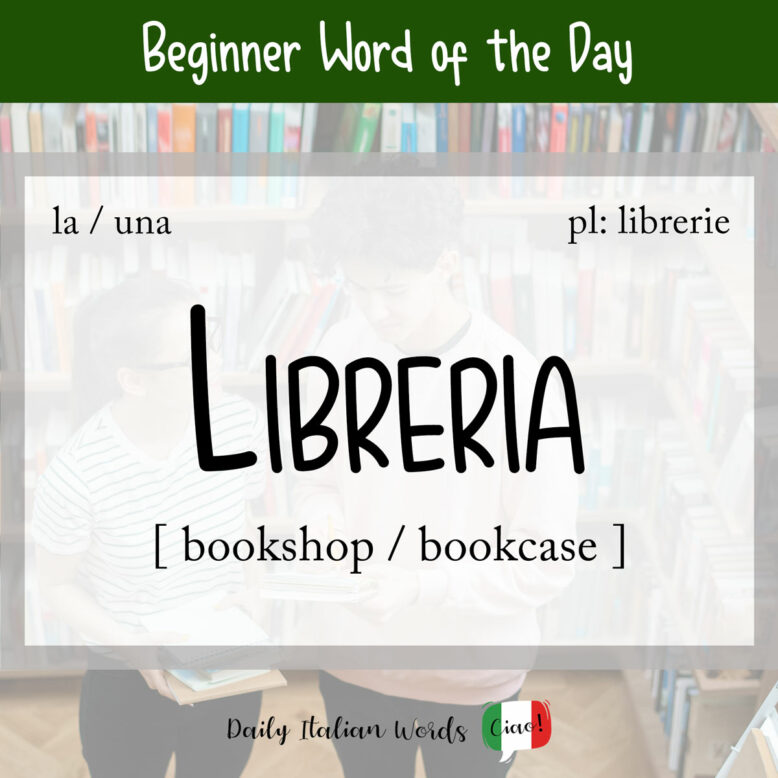There are numerous false friends in Italian and English, but few cause as much confusion as libreria and library. Although they share the same origin – the Latin word libraria – they mean two very different things. The Italian libreria has retained the original Latin meaning, bookshop or bookstore, whereas the English library denotes the place where people go to borrow books. Note that what is called a library in English is called a biblioteca in Italian.

Libreria is a feminine noun, so it takes the following definite and indefinite articles:
- la libreria = the bookshop
- una libreria = a bookshop
- le librerie = the bookshops
- (delle) librerie = (some) bookshops
Vado in libreria a comprare un libro.
I’m going to the bookstore to buy a book.

By extension, libreria has come to refer to the piece of furniture used to store books – that is, a bookcase or bookshelf. In some cases, it may also refer to the room in a house where books are kept, but biblioteca is the more common term.
Mettiamo tutti i libri nella libreria.
Let’s put all the books in the bookcase.

When the English word library refers to a collection of books, rather than the building or room itself, it is possible to translate it using the word libreria. In technological terms, it can also denote a software library.
Giorgio ha una libreria enorme.
Giorgio has an enormous library / collection of books.
To conclude, it is worth mentioning that in the past, libreria was actually used to refer to both public and private libraries. A good example is la Biblioteca Marciana in Venice, which was formerly known as la Libreria Pubblica di San Marco.
Heather Broster is a graduate with honours in linguistics from the University of Western Ontario. She is an aspiring polyglot, proficient in English and Italian, as well as Japanese, Welsh, and French to varying degrees of fluency. Originally from Toronto, Heather has resided in various countries, notably Italy for a period of six years. Her primary focus lies in the fields of language acquisition, education, and bilingual instruction.


